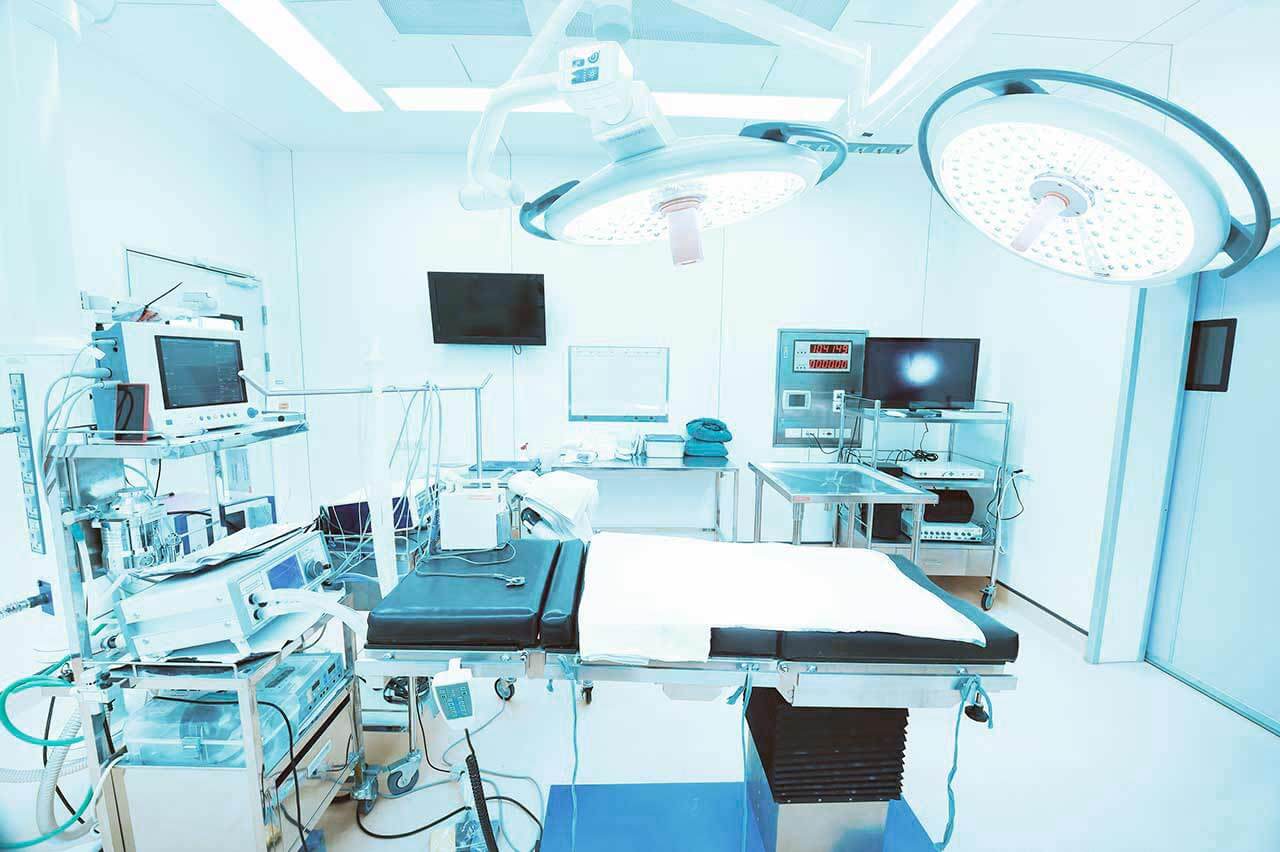
About the Department of Urology and Andrology at Eilenriede Clinic Hannover
The Department of Urology and Andrology at the Eilenriede Clinic Hannover provides comprehensive diagnostics and effective treatment of the full range of diseases of the urinary system and pathologies of the reproductive system in men. The department's doctors also specialize in the treatment of andrological diseases, namely, hormonal disorders and erectile dysfunction. Of particular interest is the treatment of urologic cancers, kidney stone disease and inflammatory diseases of the urinary system, as well as urinary incontinence. The department has modern diagnostic rooms for examination and making an accurate diagnosis. The treatment regimen is developed for each patient individually, based on the specific clinical indications. Whenever possible, conservative treatment becomes an option of choice, while surgical interventions are the last-line therapy. If the patient still needs an operation, the specialists working in the medical facility strive to choose the most sparing type of surgical intervention. The department is headed by Dr. med. Birgit Fahlbusch.
The department is distinguished by its successful experience in the treatment of prostate, testicular, kidney and bladder malignancies. The most common type of male cancer is prostate cancer. To confirm or exclude the diagnosis, doctors conduct a prostate-specific antigen (PSA) test and ultrasound scanning, as well as a prostate biopsy. If the patient seeks medical help in time, doctors are able to detect oncology at the early stage, which significantly increases the chances of a complete cure. Since prostate cancer is not an aggressive type of oncopathology and progresses slowly, some patients, especially elderly men, are recommended the so-called "watchful waiting" that involves regular diagnostic tests to control the course of the disease. However, in most cases, prostate cancer treatment is based on prostatectomy (partial or total resection of the prostate gland), and is complemented by chemotherapy, radiation therapy, hormone therapy and other treatments prescribed on an individual basis. In the course of surgical treatment, the department's urologists successfully use low-traumatic surgical techniques that exclude extensive skin incisions, severe blood loss and pain syndrome.
Kidney and bladder cancer are also quite common in the department's clinical practice. To cure these cancers, doctors use a comprehensive treatment regimen, including surgical resection of the tumor or total removal of the affected organ, chemotherapy, radiation therapy, and/or hormone therapy. Surgical removal of the tumor is an integral part of treatment, and the decision to carry out chemotherapy, radiation therapy, or hormone therapy is made by the attending physician based on clinical indications.
An important area of work of the department's team of urologists is the treatment of urolithiasis – a disease in which stones form in the kidneys and urinary tract. During the diagnostics, the department's doctors carry out a clinical examination, perform an ultrasound scan, laboratory blood and urine tests. Once the diagnosis is confirmed, specialists begin treatment planning. Therapeutic tactics are determined by the size of the stone, its location, patency of the urinary tract and kidney function, as well as the presence or absence of concomitant diseases. At the early stages of kidney stone disease, conservative therapy is usually effective. With the development of renal colic, symptomatic treatment is carried out, and the last-line therapy is a minimally invasive intervention to remove stones in the kidney or urinary tract. In addition, the department offers lithotripsy.
In the field of andrology, men with hormonal disorders and erectile dysfunction are admitted. Doctors normalize the hormonal levels using medications prescribed with due consideration of the particular clinical case. Patients with suspected erectile dysfunction undergo comprehensive diagnostics (hormone testing, infection testing, ultrasound scanning, vascular Doppler ultrasonography), which allows detecting the causes of erectile dysfunction. Erectile dysfunction often develops due to other diseases, as a result of stress and depression. In such cases, doctors of the required specialties are involved in the therapeutic process. As a rule, pharmacotherapy, psychotherapy and physiotherapy procedures are used to eliminate erectile dysfunction. Surgical treatment is rarely required.
The department's range of medical services includes:
- Urology
- Diagnostics and treatment of urologic cancers
- Prostate cancer
- Testicular cancer
- Kidney cancer
- Bladder cancer
- Diagnostics and treatment of kidney stone disease
- Diagnostics and treatment of urine outflow abnormalities
- Diagnostics and treatment of inflammatory diseases of the urinary tract: acute and recurrent urinary tract infections
- Diagnostics and treatment of urinary incontinence in women and men
- Diagnostics and treatment of functional disorders of the bladder and urethra
- Diagnostics and treatment of urologic cancers
- Andrology
- Diagnostics and treatment of hormonal disorders in men
- Diagnostics and treatment of erectile dysfunction
- Other medical services
Photo of the doctor: (c) Eilenriede Klinik




